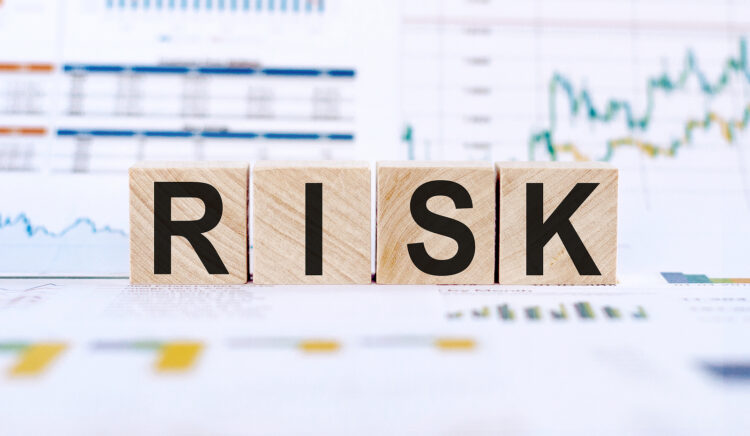All wise investors know that the money they invest in is not entirely safe from risks. While investments can allow you to get large profits and increase your money substantially, they can also go down making you face heavy losses. Investing is a risky business and you as an investor should be aware of the risks and avoid making simple mistakes that can cause you to lose a lot of money. Several investors who are unaware of these mistakes keep on investing and go in heavy losses and debt that they don’t know how to get out of.
Investing comes with a plethora of risks, especially if you invest in shorter-term bonds or stocks which are prone to drastically change at any moment. Risk acceptance is both emotional and financial, learn more here about this. As such, it’s your job to acknowledge these risks and formulate your portfolio, investment plan, and mindset accordingly. However, the good thing is, most of these risks and dangers can be significantly lowered if you are aware of the mistakes that you can make.

That’s why in this article we will discuss several mistakes that beginner investors and even experienced investors can sometimes make so that these mistakes can be avoided in the future.
Investing mistakes that can be avoided or fixed easily
You’d be surprised at how many mistakes investors make daily and have no clue about. Mistakes like:
Lack of researching the investment and risk profile
One of the major problems in the investing world is the herd mentality many investors have. One exciting news or a sudden rise of one particular stock and every investor jumps on the bandwagon of making quick profits. While taking chances as soon as they come should be an investor’s priority, it’s of no use if you know almost nothing about the company, its valuation, and its policy in times of market crashes. As a rule of thumb, if the investment is offering returns too good to be true, they probably are.

One more factor that you need to ensure is the evaluation of your risk profile. Are you willing to risk your money for better profits? Can you handle the losses that you incur without going into financial debt? Do you want to ensure that all your investments are safe assets or do you want to go for the short-term stocks that have better profit margins but also increased risks? Ask yourself these questions. The answers to these questions will tell you what your risk profile is and how you should go on with your investments.
Thinking that you can time the market perfectly
Even well-trained and experienced investors think twice before timing the market. While you may have heard of many success stories about investors who timed the market successfully and made tremendous profits, it’s not a guarantee that their success story may apply to your investment as well. It’s important to know that timing the stock market is a very hard thing to do because of its volatility. You’ll incur more losses instead of profits while trying to time the market perfectly.

Prediction of the flow of the stock market is plausible but takes experience. However, thinking that you can predict the exact time where stocks will rise or fall is nothing but an illusion. One should take heed and sell profits a bit earlier when they are high and buy earlier than usual when they are low. While this way you are compromising a small margin of profits, you are also safeguarding yourself from heavy losses. In the longer run, the short profits aren’t worth it if they come with the risk of losing all the capital you invested.
Not diversifying to a stable level
An almost blank investing portfolio with all the capital invested in just one stock is bound to be a losing portfolio. There are two reasons for this – relying too much on one stock and a lack of dispersing your investments in different sectors. We suggest you don’t rely on one company too much, especially with all the capital you have, even if the company has only given you profits. For whatever reason, if you sense that the stocks in the company have a chance of falling and you are still holding stocks in it with blind faith, then you too have a chance of losing considerable capital along with the company.

You must disperse your portfolio to several different companies in different fields, not investing more than 10-12% of your portfolio at a time. With this implemented, even if a particular sector fails you don’t lose too much and if a sector flourishes then you gain profits from not only the companies of that sector but from the companies of other sectors as well since many sectors are often interconnected with each other. On the other hand, you put all the eggs you have in one particular basket, and you put the eggs to unnecessary risks without any reason at all.
Being emotional while investing
Many new investors are riddled with nervousness when they start out investing. As such, many of them become vulnerable to their emotions and execute decisions on an emotional basis rather than an economic one. Nothing can hurt your profits more than your own emotions. In investing especially, if you let greed and fear drive your decisions, you will be prone to lose out on profits and incur more losses. Being too greedy to sell when the market is high and being too scared to buy when the market is down are sure causes of investing failures.

Invest with a rationalized mind and know when to sell out. Even if the situation seems dire, don’t let your emotions overlap your rational thinking and take control of your investments. If your investment does go in a loss, which can happen quite a few times, don’t get disheartened or overly hopeful that they will rise again. Know when you are at loss, act as soon as you can to minimize the losses, and immediately invest the money in some other stock that you have researched about.
Conclusion
In the end, we are all human and we all make mistakes. However, minimizing these mistakes and fixing them as soon as they happen is also in our hands if we are aware and well-prepared for them. If this article helped you out, please do consider following our website for regular updates as it will help us out immensely.
 Hi Boox Popular Magazine 2024
Hi Boox Popular Magazine 2024



